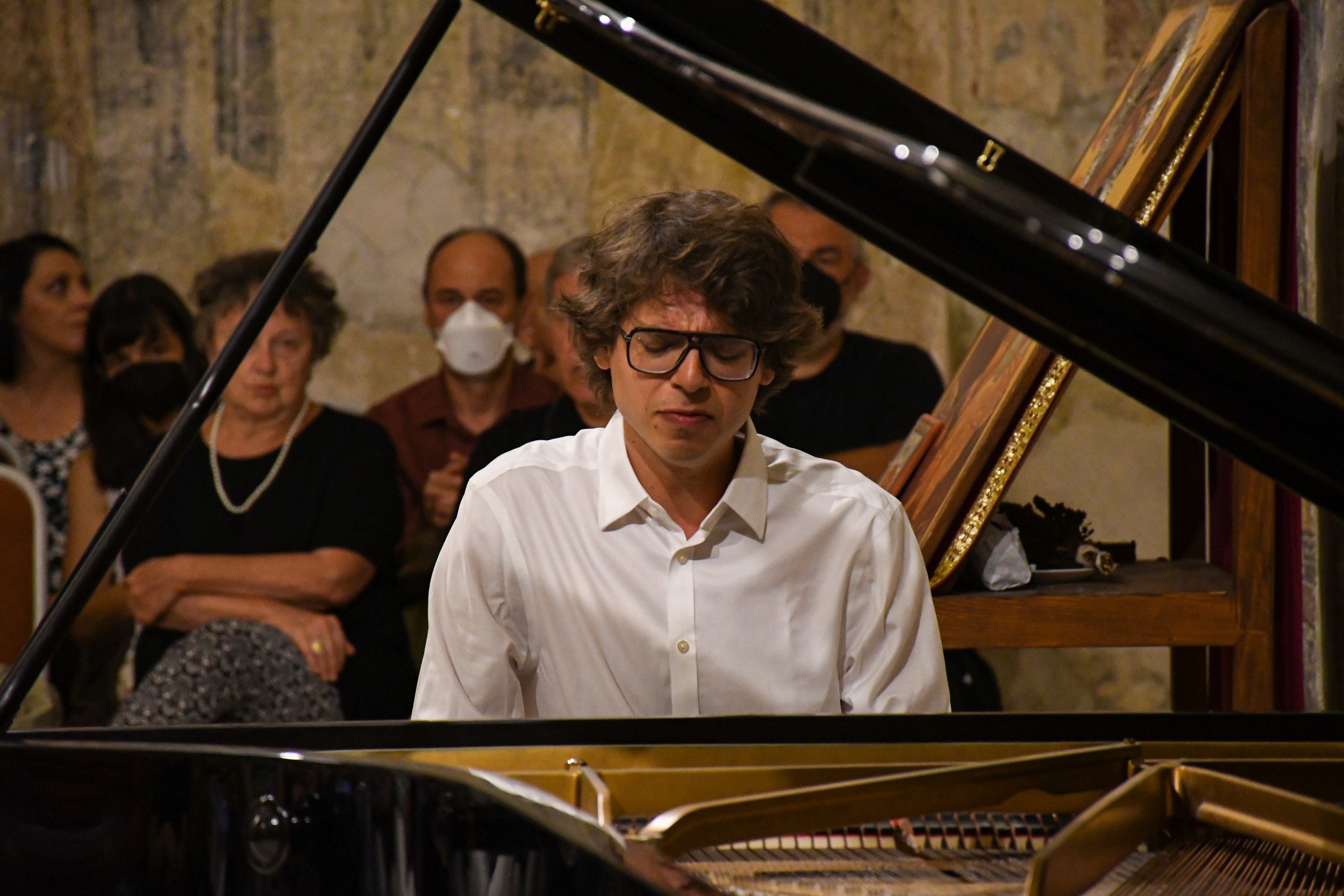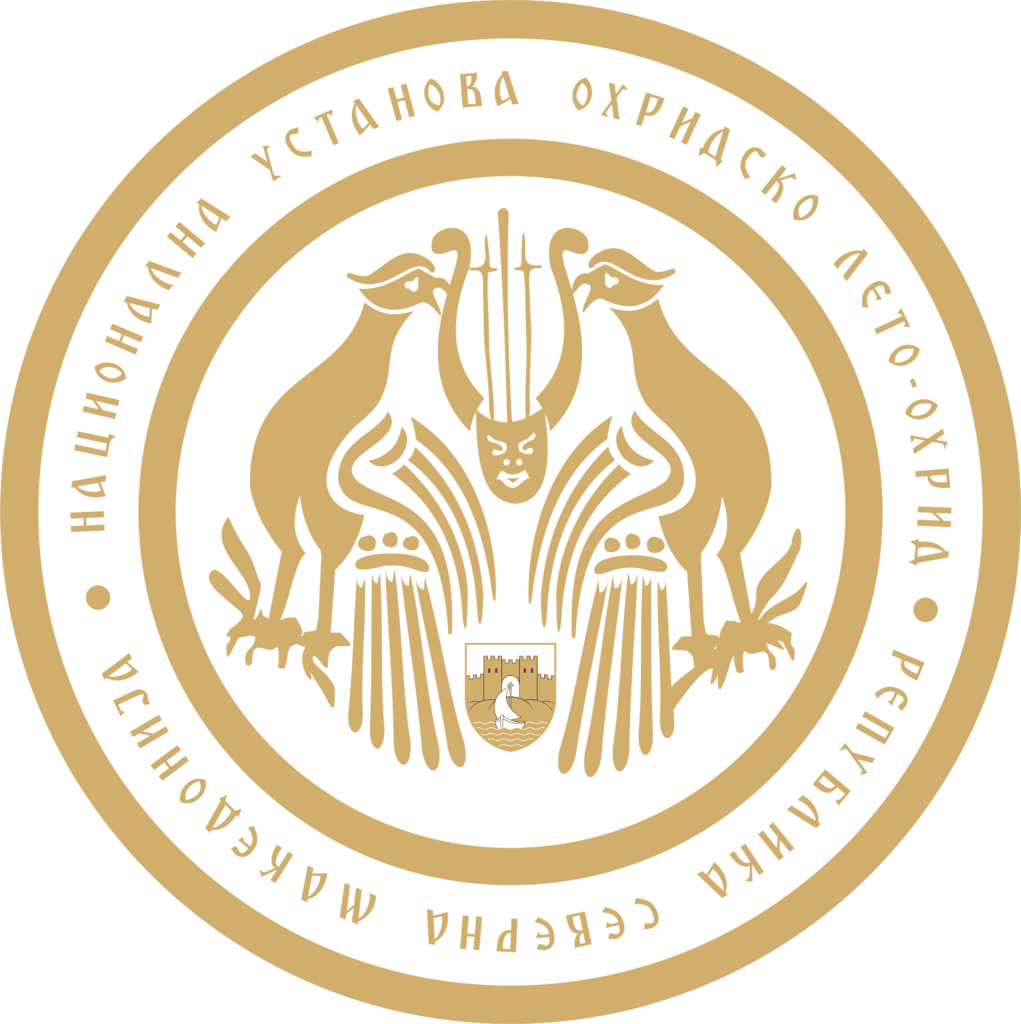
The regular strive to put musical sensation into thoughts and words is not a simple process. How much you guide yourself through some “real” parameters, bringing a value conclusion for a piece of art, at the end falls down to expressing one’s personal attitude. The musical performance, or, the so-called “reproductive art” is an object of observation throughout history of music and through all eras and perspectives in philosophy and music aesthetics. Because it’s undoubtedly an independent aco of creation. The ever-emerging question among all of us daring to bring a critic’s judgement, is how much the interpretation should be close to what is called “music constant” in a musical piece. It is an eternal polemics, especially among the “experts”. However, the historical trends somehow show that strongest marks are left by those who impressively exceed the frameworks of the predictable and thus become legends. We won’t mention names, it is a question of personal taste. But, without doubt, this short introduction will be dedicated to the young French pianist Lucas Debargue, who we were lucky to attend at Ohrid Summer Festival. It’s because his artistic appearance is undoubtedly a synonym for a “revolutionary musician” who with the speed of light soared to the top, among the legends. Simply, when you read the written reactions about him, the excitement rises even before coming to the concert: “Since Glenn Gould visited Moscow and Van Cliburn won the Tchaikovsky Competition in the whirl of the Cold War, there wasn’t any foreign pianist who has caused such madness”… “incredible talent, artistic vision and creative freedom”… enough.
Usually, after excellent concerts at Ohrid Summer Festival there is a long applause, “Bravo!” exclamations, standing ovations, but strong spontaneous exclamations after the first played piece, the Mozart’s Sonata in A minor K.310!!! That is rare to hear, and it’s “madness” indeed.
Following some of his interviews, he chooses for concert repertoires well-known pieces, but also some forgotten ones, equally. In both cases, with a scientific approach he dives into the most hidden depths of the scores, studies them to the maximum, and then “transpones” them through his vision and taste. We got perfectly convinced of that at the concert in Ohrid. This time, those were much well-known, “played” compositions, by their complexity and volume enough for two recitals. Besides Mozart, the Chopin’s Balade No.2 in A minor, Prelude op.45 in Cis minor, Polonese-Fantasy op 61 in A-flat major, “Gaspard de la Nuit” by Moris Ravel, the Liszt’s “Dante” Sonata and three more majestically played sonatas by Scarlatti in the encore – imposing! The impression is that after all, he has the energy for one more concert like this.
The length of this review is too small to express all that we experienced at this amazing concert. At the beginning you could hear the echo of the “real” Mozart through crystal-clear passages, and you get stunned by the brave solutions of una corda in fortissimo, then float in the majestic second movement, the pianist speaks through his melody line, firmly organized articulation in the third movement, the interpretation is dominant, yet delicate.
As for Chopin, the interpretation by Debargue directly emerges from the French interpretation of his irreplaceable music and his strong connection with the French spirit. It’s an elegant, clear and refined style, full of finely made dynamic and agogical finesses. No pathetics. Everything is tastefully made and understandable and made available to the most of the clueless.
After the first part of the concert, which is an aesthetically finished cycle and shows more of the lyrical aspect of his interpretation, Lucas Debargue enchants you with two intensive pieces: Ravel, on his domestic French area, but also Liszt, with which performance in even more surprising manner he convinces you he is well-acquainted with him. The very announcement that you are about to hear the Suite Gaspard de la nuit by Ravel is a challenge, with an accent on the last movement, Scarbo, evidently one of the most complex pieces for solo piano in the history of piano playing. The avant-garde modernism interwoven in the ruffled scores “Gaspard de la Nuit” – a masterpiece of the French impressionist, which sounds so fresh and powerful even in the 21st century, fully contemplates Lucas Debargue’s unique temper, but also the bravurous level of his piano technique. We were lucky to hear this piece in Debargue’s perfect performance, which, besides its technical complexity, bears fantastic dramatism, but also majestically beautiful music. For the end, in full brilliance, the Sonata “Dante”, where we heard all the piano characteristics of Liszt’s piano language, explosive details and accords in an authentic ad libitum interpretation by Debargue. In this composition he fully showed the impressive volume of his creative energy, but also creativity, liberated from the limitations of any classical concepts of the known piece.
In Lucas Debargue you cannot decide what impresses you the most, his impeccable memory, the performing condition, his amazing imagination which he uses to create the dynamic colours as a reflection of his inner world and deep spirituality, his superior piano technique and of course, the peculiarity of his performance – his role of a co-creator with “visible” personal interventions in the played compositions. He possesses the uniqueness because he openly plays in a manner that satisfies his artistic taste, satisfies his vision of how pieces should sound and look, and, however different, contrary and unusual to the set standards, that is the detail that captivates the audience. A special virtuoso who simultaneously enjoys his flawless concentration which he magically transfers to the audience and enables it to dive into his world. By the euphoria he leaves behind, probably in the future the aesthetics in the piano playing should move in his direction.
However, in context of the introduction, a personal opinion: what makes Lucas Debargue a GREAT ARTIST, is the unsparing emotional self-giving on stage and to the audience. That is the highest level in art. Therefore come the exclamations.
Vikica Kostoska Peneva

